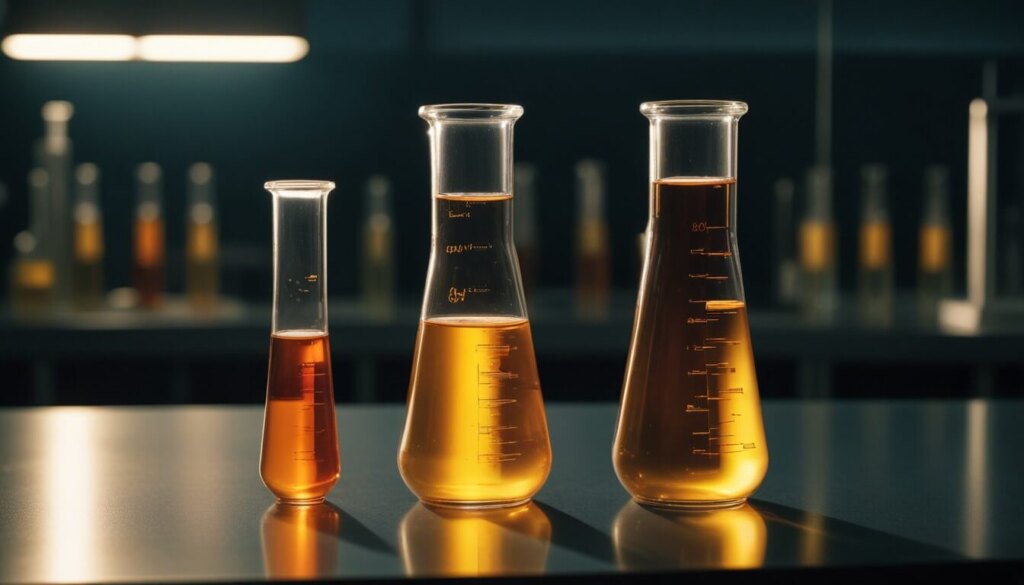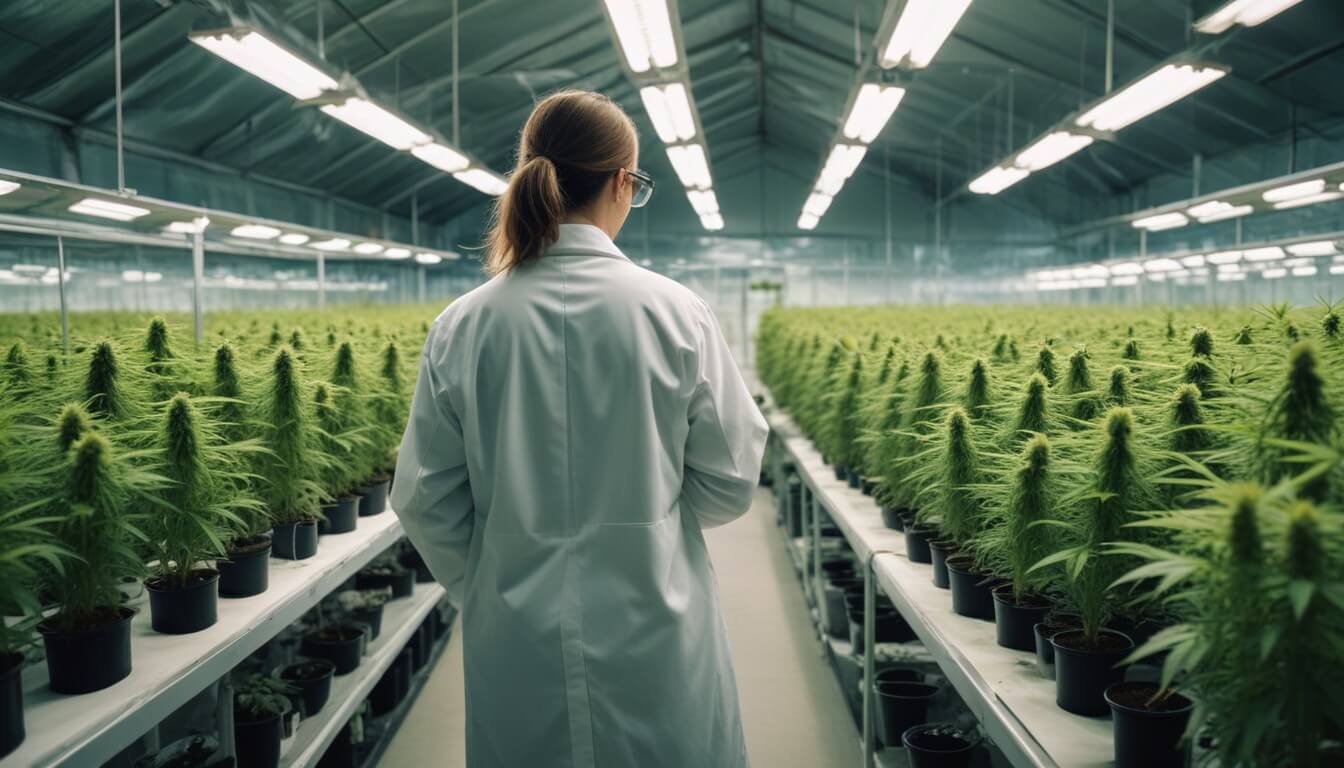The constituent parts of the CBD system are the cannabinoids, which are naturally found in the cannabis plants. The endocannabinoid system is influenced by these compounds and they participate in different body activities.
In addition to THC, the most renowned cannabinoid for its psychotropic properties, there is CBD (cannabidiol) among the other cannabinoids under investigation for their possible curative effects. But what is THC-A really? Let’s find out!
What is THCA?
Tetrahydrocannabinolic acid (THCA) is a cannabinoid present in the molded and sprouted cannabis plant. It is non-psychoactive and is the main psychoactive compound in cannabis that produces the “high” feeling. THCA, which is made up of 90% of fresh plants’ THC amount, is not psychoactive but is converted into THC upon heating or ingestion.
THCA is known as the initial cannabinoid that is produced during the formation of the hemp plant. Production of CBG is a natural phenomenon occurring in the “hair” or trichomes of cannabis plants and it is there that its primary function is – namely the biosynthesis of other types of cannabinoids, including the famous psychoactive THC.
The process by which there is a shift from THCA to THC, known as decarboxylation, happens by using heat, prolonged exposure to sunlight, or any other means of heating. What happens meanwhile is somewhat the same thing: it is the COOH group’s loss that makes up for the appearance of THC. This allows the chemical modification to happen leading to a change in the molecular structure and which enables the placement of psychoactive capabilities. For consumers and medical patients who seek specific effects from their cannabis products, and either crude THC or non-psychoactive THCA, then a detailed understanding of this change is highly important for them.
THCA vs. THC: Understanding the Difference
Both THCA and THC are different, they exhibit distinct chemical structures and psychoactive effects. THCA features an additional carboxyl group, absent in THC, making it non-psychoactive.
Through decarboxylation induced by heat or light, THCA transforms into THC, activating its psychoactive properties. This process is akin to a key turning on a car engine, converting inactive THCA into active THC capable of interacting with your body’s receptors and altering consciousness. Understanding this conversion is crucial for individuals seeking to use cannabis for therapeutic benefits without the high or for recreational purposes.
While THC induces relaxation and euphoria upon consumption, THCA lacks such effects due to its inability to bind effectively to brain receptors. Consequently, the impact of THC and THCA on the body varies significantly owing to their differing chemical compositions.
Regarding legal status, THC is often classified as a controlled substance in many countries, subject to stringent regulations. Understanding regional laws governing the possession and use of THC and THCA products is essential in navigating the market responsibly, particularly with the evolving landscape of marijuana legalization.
Being informed empowers consumers to navigate the market responsibly, especially when considering purchases from reputable dispensaries. This also makes it easier for the customers to only choose those products that they consider the safest and the best ones for them.
Potential Benefits of THCA
Since it belongs to the family of Cannabis, THC-A is bound to share the beneficial profile of this family. It contains in itself various benefits that affect people differently, yet allow them to make the most of this compound.
Through research, experts have been able to uncover some potential benefits of THC-A, which are as follows:
Appetite Stimulation and Nausea Relief
THCA shows promise in alleviating appetite loss and nausea, particularly in individuals undergoing cancer treatment or struggling with eating disorders.
Pain Management and Inflammation Reduction
THCA exhibits the potential to reduce pain and inflammation, offering relief for various conditions, including chronic pain and muscle spasms.
Treatment for Inflammatory Bowel Diseases
THCA may help alleviate symptoms associated with inflammatory bowel diseases like Crohn’s disease and ulcerative colitis, offering relief from chronic pain and muscle spasms.
Anti-Cancer Properties
Research suggests that THCA might impede the progression of cancer cells, with a specific focus on prostate cancer.
Neuroprotective Effects
THCA shows promise in promoting brain health by protecting memory and coordination. It also holds potential in combating neuroinflammatory diseases such as Alzheimer’s, Parkinson’s, Huntington’s disease, and ALS.
Relaxation and Sleep Aid
THCA may induce relaxation and potentially serve as a sleep aid, offering relief for insomnia and promoting better sleep quality.
Seizure Reduction
THCA exhibits the potential to reduce seizures and spasms associated with conditions such as epilepsy and multiple sclerosis.
It is expected that when further benefits of THC-A are revealed, they will become more accessible and of use to people who wish to make the most of it.
Legal Status and Accessibility
Just like every other constituent of Cannabis, the availability and legislation of THC-A are unique to each one’s country. While some countries are just fine with the product being sold or not used at all, other countries have disparate legislative frameworks in place for THC-A use that must be abided accordingly.
Legal
THC-A is considered legal in states like Alaska, Arizona, California, Colorado, Connecticut, Delaware, Florida, Georgia, Indiana, Iowa, Kentucky, Maryland, and several others. These states permit THCA products extracted from hemp containing less than 0.3% delta-9 THC. In such cases, the regulations often require that the hemp material be security labeled.
Gray Area
Some states, like Hawaii, Kansas, Louisiana, Utah, and Vermont, have unclear or restrictive regulations regarding THCA. The legality may depend on factors such as the source of THCA, THC concentration, and specific state laws.
Illegal
THCA is considered illegal in states like Idaho, Oregon, Rhode Island, and Wisconsin. These states may have strict regulations or prohibitions against THCA due to its status as a precursor to THC or concerns about THC concentrations.

How to Use THCA
THC-A has several applications. The form of application will strictly be determined by your preference and target result. Consequently, this is the direction of your life in which you should publish. If you intend to tear oneself away, start by placing THC-A crystals in your dab rig or e-dab nail.
Moreover, you can enjoy THAC crystals by dropping their pearls into your herb bowl or sticking them on the corners of your joints.
On the other hand, if you don’t want to ingest THC-A, you should not heat it at all, avoiding the side effects of THC-A instead. Just like THCA crystals can be added to various beverages like juices and smoothies, again in highly digestible forms, THCA is not converted to THC during digestion.
The other approach is to integrate THC-A in pills or capsules which can be consumed on a prescribed basis once per day with consistent experience assured. Tinctures can also be taken by consumption or put under the tongue for fast-acting effects.
By administering the THC-A tincture sublingually and retaining its position underneath the tongue for around a minute, the THCA is absorbed directly into the bloodstream and brain.
Conclusion: The Role of THCA in Cannabis Consumption
THCA is one of the principal compounds of cannabis, and it provides us with the variety in the use of this plant starting from a list of benefits to the methods of consumption.
THCA offers therapeutic advancements without psychoactive properties. Additionally, unlike THC, which is psychoactive, it could be a go-to for patients who want relief from various ailments. It can be ingested in different ways, from dabbing to sublingual use. There are different methods of utilizing it.
If used individually or with other cannabinoids, THCA will create options, which will let them choose individually what is better for them. This offers users an opportunity for a personalized journey in fun with cannabis.
Researching THCA will continue to develop, probably, and provide an extension to its accountability, which gives people who use cannabis to get the therapeutic benefits of cannabis without the psychoactivity effects of THC more options. Until then, continue using it with the necessary precautions and you are good to go!





